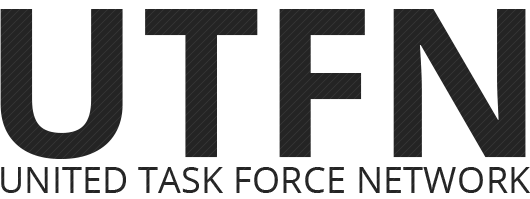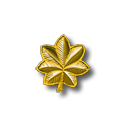Unit-wide Announcements / Headquarters
TFCO SITREP/28 - Update following 80th Unit Command Meeting
Friday 21 February 2025
I hope you all are doing well. The officers met on Tuesday 13th of February for our 80th Unit Command meeting to update each other on developments and discuss major topics and the result of the Annual Survey. In accordance with our goals to improve unit communication, here is a SITREP based on the officer meeting.
Before we go into the details of the discussions, however, allow me to wholeheartedly thank Mohawk for all his hard work in the ORGCOC. He is now stepping down from all his positions in the ORGCOC due to time limitations. Mohawk is a long-standing member of UNITAF, and has been a reliable contributor to the unit.
The headlines: Broadly speaking, the unit will focus on two things in the near future - the development of a sustainable GM and FL pool to ensure regular and varied deployments, and ensuring progress in the rollout of FTS is both much more rapid and to lessen any negative impact it has on launch due to correction of Tiers - as well as getting back to having only one system as soon as possible, once LTS is fully phased out.
Personnel Command (PC)
The current status in Personnel Command can be said to be stable. As a general trend, reports take slightly longer to resolve, this mainly due to PC staff members' availabilities, though this is currently not a concern. PC will continue to monitor this.
-
J1 will soon undergo some changes with regards to the intake, where some responsibility will be shifted over to J7 - and particularly the Core Infantry Training Team. This is to ensure high-level instruction whilst also ensuring that the training responsibilities rests within one group. J1 will, however, still be involved to ensure fair evaluations of the candidates, as is the responsibility of J1. The implementation of the buddy system has been successful and will continue even after this transition. PC and TC will follow up on this process over the coming weeks and months to ensure that this process goes smoothly.
- J2 has some projects ahead of them, but overall is well-functioning. During our officer meeting, information transfer to other command groups was the main topic. The officers agreed that this should be handled on the officer level, and then disseminated downwards in the relevant command when and where relevant. This will ensure confidentiality whilst also ensuring that important information is communicated through correct channels.
Operations Command (OC)
Operations Command remains primarily focused on improving the sustainability of game masters and field leaders. With theatres being rolled out in its first iteration, efforts are now more geared towards supporting the transition of mission support SOP to FTS, facilitating the onboarding for new mission creators, and ensuring an easier matchmaking experience.
-
The matchmaker system we currently have is both archaic and not very visible. For that reason, we're preparing a new system, which involves the usage of Discord Forums to better manage, organise, and focus the matchmaking process. Expect more on this soon.
- There is also a new thread for all SGMs and FLs in the unit. The purpose of this thread is to ensure communication of best practices across campaigns and theatres, and to give J3 a direct channel to reach out to this group of members. If you have not been added to this channel, and believe you should be added, reach out to J3.
It was suggested that Operations Command is given more metrics to evaluate success. In particular, metrics measuring the number of unique active GMs in a given period would be a measure that would indicate the health of the GM pool. Metrics such as these, and similar ones in other commands, could also help members understand the work done by staff members, and should therefore potentially be publicly available.
Training Command (TC)
Training Command focuses on the transition from LTS to FTS, and standardising practices across the training teams.
Areas that are under active FTS development are:
- Combat Leadership
- Communications
- Logistics
- Fire Support
- Reconnaissance
- Land Navigations
- Mission Support.
Whilst ETAs on the areas are still TBC, combat leadership and communications are the areas we do expect to be launched first.
Approach to Doctrine and Future Training System (FTS)
The annual survey, as well as other feedback, has indicated that the current approach to FTS is overall sound, but that there are concerns with the speed of transition and overall burden on TC (and particular J7) staff. It was proposed that we change the doctrine with regards to the skill system from a system in which each member must prove themselves, to a system in which each member must not disprove themselves. In essence, the system assumes you build competence over time as you play in that area. Training teams would then play a role in correcting tiers - either by supporting a faster up-skilling, or by correcting it downwards should a member not be deemed as proficient as the assumed skill level.
This would allow us to combine the best bits of LTS to the FTS, while addressing the weaknesses we have encountered in both systems. By adopting such a system, we would seek to reduce the overall workload and burden on the training teams, whilst also make progression more predictable for the individual member. It is also, at this stage, believed that this new system will also allow for quicker publication of other FTS areas, and that we might be able to publish skill cards in smaller iterations. At the publication of this SITREP, more advanced conversations on this topic are currently underway in Training Command and beyond, and we will announce soon the details of how this would work. We seek to implement these changes prior to the closure of the CI grace period.
On Tuesday 17th, CC arranged an open meeting with training teams and other interested members to discuss this approach. A summary of this meeting and plans for the upcoming update to FTS will be posted soon, however the recording of it has been published to the UNITAF "TAFFCAST" podcast, so you can listen to it there.
Another point of doctrine, which was emphasised, was the general process of doctrinal change in UNITAF. The way the ORGCOC is set up, J# staff groups are focused on the main work done in the unit. If changes to the status quo are desired, the J# then recommends a course of action to their command, which then makes a decision in the case it's an internal policy, or brings it to Central Command if the proposed course of action affects more people than the staff members of that command. This decision tree remains core to the UNITAF decision-making process and will be codified into the FM by Central Command shortly.
Conclusions
As should be apparent, there are a number of ongoing processes within UNITAF - the most important of which concerns the sustainability of mission maker and field leader pools and adjustments to the Future Training System to ensure that we can ensure a more rapid rollout, and smoother transition with minimal impact upon members and progression. Unit Command will be committed to follow up on these points.
Major Korean Falcon
Commanding Officer
UNITAF

